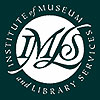|
|
|
||||
|
|
 |
|
|
||
 |
|
|
|
||
 |
|
||||
|
|
|
||||
|
|
||
| Welcome |
||
| Credits |
||
| Timeline |
||
| Search |
||
| References |
||
| Links | ||
|
|
||
|
|
 |
|
|
|
||
 |
||
|
|
||
 |
||
SearchThere are four ways to search the American Origins: Keyword, Person, Property, and Geography. Keyword Search: The most general and usually producing the most results. This search queries wills, inventories, accounts, and judicial records. There are two options when using a keyword search: property or slave/servant. A property keyword search lists any material property, while a slave/servant keyword search lists human property. Person Search: Searches for any person in the database who has some record attached to them such as an inventory, will, account, judicial record, census, church record, or tax list. For practice try "Thomas Covington" or "Betty Gale". Property Search: Property searches query for the name of a tract, the hundred (voting district), or the acres of a tract. Try George Dashiell's tract called "Dashiells Lott" or John Rencher's property "Adventure" for good samples. Geography Search: Searches the geography section of the database using maps and GIS technology. Additional directions for its use will be found on the mapping page. Helpful HintsThe following steps will guide you in your search of the American Origins database. Searches on the database will reveal all the information that has been entered about an individual including their social status, relatives, possessions, and property. The majority of information entered into the database came from original documents. To stay true to the original documents, the information was entered exactly as it appeared on the document. However, researchers should keep in mind that during the 17th and 18th centuries there was no standardized spelling - writers spelled words phonetically. Spelling differences were based on the pronunciations, education, or arbitrary whims of the individual. While our transcriptions represent these variations and give an authentic "feel" to the documents, problems arise when querying. Should you spell something according to modern spelling, but the original documents spell it phonetically, it may not be found. To overcome this, you will find it helpful to enter only the first letters of a word and then scroll down through the list and pick the matches you want. For example, if you enter "cow", you will get "cow", "cowe", "cowley", "coward", etc. Also, try various spellings of words, especially phonetic spellings. In some cases when you are searching for a specific person, they will be found in more than one location. Links were not made between primary individuals in the database. A primary person is someone who has various records attached to their name. Secondary people are those individuals mentioned in documents associated with the primary. Therefore, an individual may be found listed as a child, spouse, witness, excetera on a primary person's listing and also be in the database as a primary person. In several instances, we have included an electronic image of the original will or inventory. To view these documents, you will need Adobe Acrobat Reader. For the free Adobe Acrobat Reader download visit: http://www.adobe.com/products/acrobat/readstep2.html
|